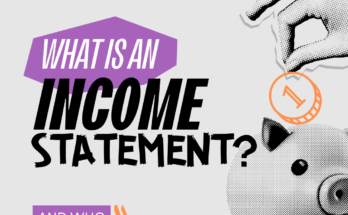When embarking on the exciting journey of starting a business and drafting a business plan, a common query arises: Where should one begin? The answer, interestingly, lies at “the end.” Imagine where you envision your business five years from now, as this serves as the foundation for your planning process. In a previous discussion, I likened a business plan to a map or guide leading to success. In that analogy, an entrepreneur without a business plan is akin to a traveler venturing from Los Angeles to New York without a roadmap.
Table of Contents
7 Questions To Ask Yourself Before Starting A Business.
This principle of setting a destination before commencing the journey applies not only to real-life travels but also to the initiation of a business. Just as you wouldn’t set off on a vacation without a clear destination in mind, you shouldn’t embark on your entrepreneurial venture without a defined goal. In the business realm, this concept is often known as an “exit strategy,” but for the purpose of this article, let’s refer to it as your “destination.”
Once you’ve pinpointed your destination, the subsequent step involves plotting the route to get there and deciding what actions to take upon arrival. In real-life travel terms, this equates to considering whether to fly, drive, or take a train. Will you stay at a hotel or with friends when you reach your destination? What are the estimated costs to cover your vacation expenses? In the business planning arena, the equivalent entails devising ways to attract customers to your establishment (through print, media, radio, or the internet). You must also decide on your business location – will you buy or rent your space? How much will each of these components cost? Addressing these crucial questions is essential for successfully reaching your chosen destination (exit strategy).
Moreover, to truly navigate this entrepreneurial journey, you must grapple with several pivotal questions. Below are 7 questions to ask yourself before starting a business:
1. How will I reach my destination?
This question prompts you to outline the specific steps and strategies you’ll employ to achieve your business goals. Will you focus on aggressive marketing, exceptional customer service, or innovative product development? Detailing your approach is essential for a successful journey.
2. What skills are required to reach my destination?
Consider the expertise needed to accomplish your goals. Are you equipped with the necessary skills, or do you need to hire individuals who possess the required abilities? Evaluating your skillset is vital for identifying any gaps.
3. Do I have those skills or do I need a partner?
Assess your strengths and weaknesses. If you lack critical skills essential for your business, consider collaborating with someone who complements your abilities. A compatible partner can enhance your chances of success.
4. What tools will I use to help me get there?
Identify the resources, technology, and tools that will support your journey. Whether it’s advanced software, specific marketing platforms, or networking opportunities, having the right tools is fundamental.
5. How will I know if those tools are working?
Establish key performance indicators (KPIs) to measure the effectiveness of your tools and strategies. Regularly monitor these metrics to ensure you’re on the right track and making data-driven decisions.
6. How will I know that I’m heading in the right direction?
Set milestones and benchmarks to track your progress. Regularly assess your advancement towards your goals and adjust your course if necessary. A clear sense of direction is vital for staying focused and motivated.
7. What will I do if I encounter setbacks?
Anticipate challenges and have contingency plans in place. A resilient attitude is crucial in the face of obstacles. Be prepared to adapt, learn from setbacks, and keep pushing forward.
For illustrative purposes, let’s imagine your desired destination (exit) is to establish a thriving burger chain in your city, which we’ll aptly name “Burger World.” An introductory statement for your business description or executive summary could read:
“Burger World is poised to become a profitable burger restaurant, delighting customers across the expansive Chicago metropolitan area.
“Now that you’ve articulated your destination (exit) and acknowledged the pivotal questions that pave the way, it’s time to delve into answering these questions in detail. This thorough exploration will be instrumental in shaping your business plan, ensuring you’re well-prepared for the journey ahead.






4 Comments on “Planning on Launching a Small Business? Here are 7 Questions to Ask Yourself Before Starting a Business.”